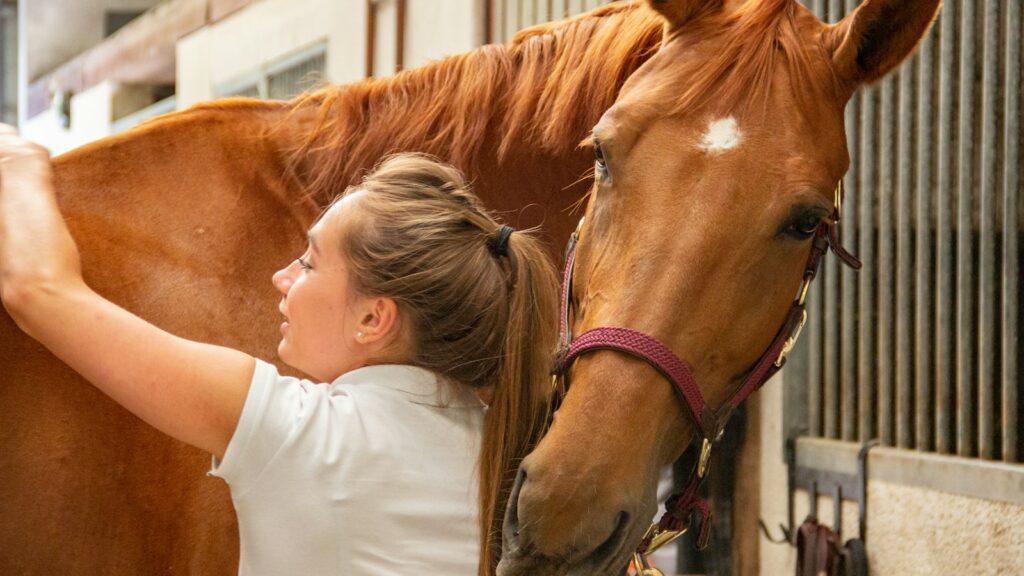Horses are magnificent creatures known for their sensitivity and acute awareness of their surroundings. When it comes to transportation, these animals can experience significant stress that may affect their health, performance, and overall well-being. Whether you’re hauling your equine companion to a competition, moving to a new stable, or traveling for veterinary care, understanding how to minimize travel-related anxiety is crucial for responsible horse ownership. The process of loading into a confined space, the motion of the vehicle, unfamiliar sounds, and environmental changes can all contribute to a stressful experience for horses. This comprehensive guide explores practical strategies to ensure your horse remains calm and comfortable during transportation, helping both you and your equine partner enjoy safer, more pleasant journeys together.
Understanding Equine Travel Anxiety
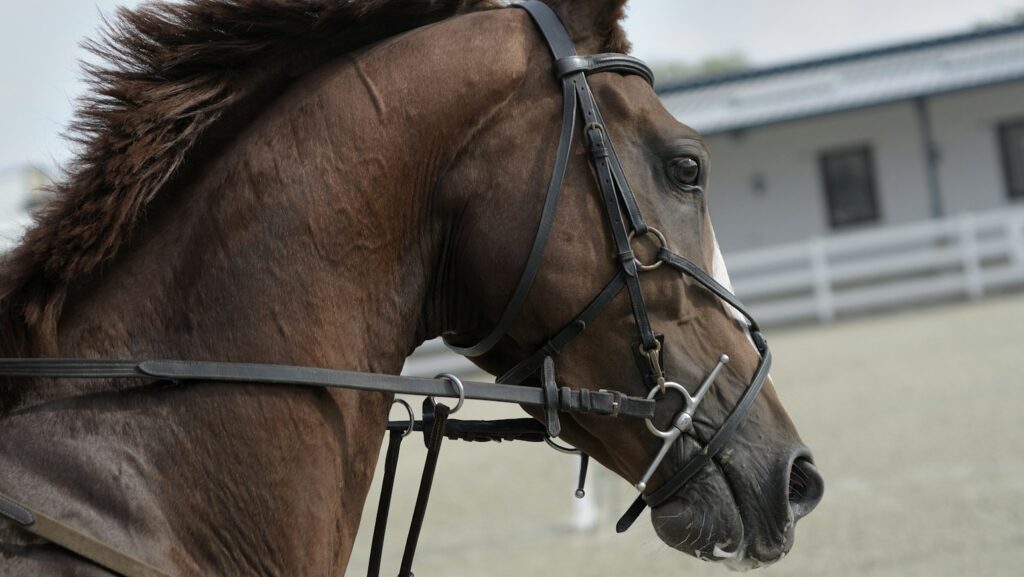
Horses are prey animals by nature, making them inherently cautious of unfamiliar situations and confined spaces like trailers or horse vans. When a horse experiences stress during travel, they may exhibit behaviors such as pawing, sweating, trembling, vocalization, or refusing to load. These stress responses are rooted in their natural instincts and can be triggered by the perception of danger, inability to escape, loss of balance, or separation from herd members. Physiologically, stress causes the release of cortisol and adrenaline, which can negatively impact the horse’s immune system, digestive function, and overall health when sustained over time. Understanding these fundamental aspects of equine psychology provides the foundation for implementing effective stress-reduction techniques during transportation.
Training for Trailer Loading Success
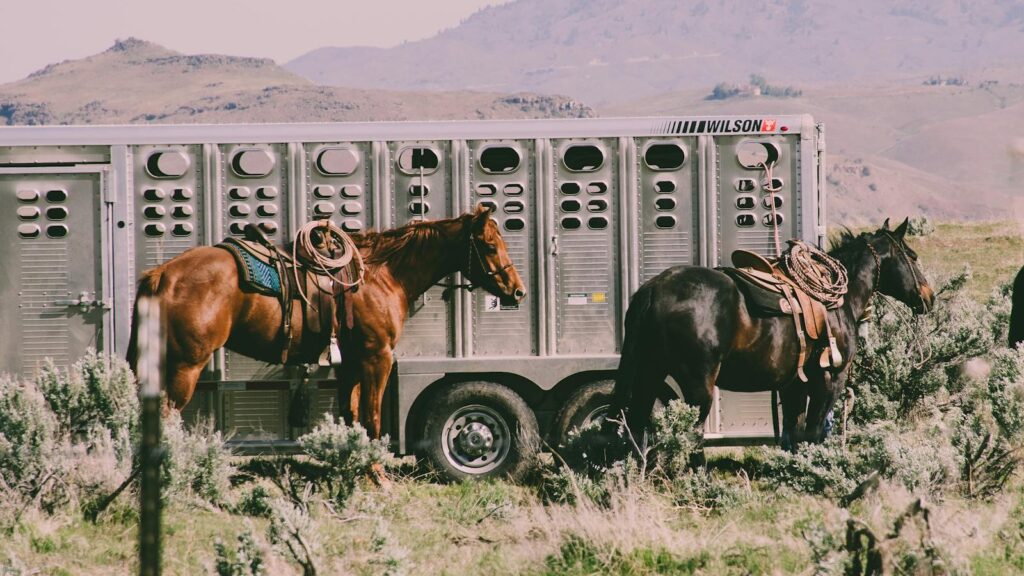
Proper training well before your travel date is essential for reducing loading-related stress, which often constitutes the most anxiety-inducing part of the journey for many horses. Begin with short, positive training sessions where the horse is rewarded for approaching, entering, and standing calmly in the trailer without the pressure of an actual trip. Utilize positive reinforcement techniques such as treats, praise, or pressure-release methods rather than force or punishment, which can create negative associations with the trailer. Progressive training should include having the horse comfortable with loading, standing quietly with the butt bar and doors closed, and eventually experiencing brief periods with the running engine before actual travel begins. For particularly anxious horses, consider enlisting an experienced trainer who specializes in trailer loading to establish a foundation of confidence.
Selecting the Appropriate Transport Vehicle
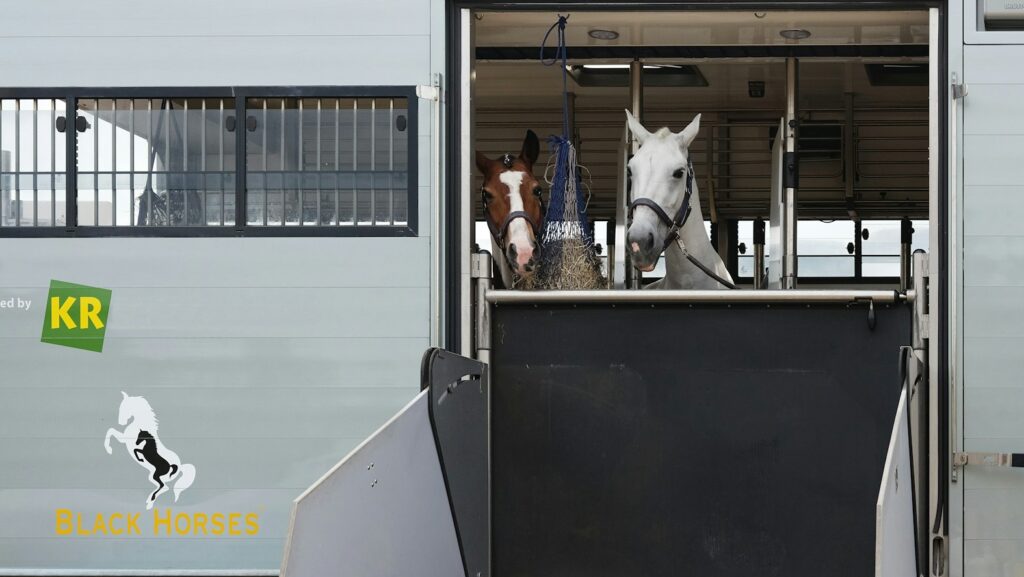
The type of transport vehicle significantly impacts your horse’s comfort and stress levels during travel. Larger trailers provide more space and typically offer better ventilation, reducing feelings of confinement that can trigger anxiety in horses. Consider whether your horse travels better in a slant load, straight load, or box stall configuration based on their individual preferences and physical comfort. Proper suspension systems help minimize road vibration and jarring movements that can unsettle horses and cause physical fatigue. Before any journey, thoroughly inspect the trailer for potential hazards such as protruding objects, damaged flooring, or inadequate padding that could cause injury or increase anxiety. Investing in quality transportation appropriate for your horse’s size, temperament, and the journey duration can substantially reduce travel-related stress.
Creating a Comfortable Environment

The interior environment of your horse transport vehicle plays a crucial role in minimizing stress during travel. Ensure adequate padding on walls, partitions, and the chest and butt bars to prevent injuries and provide cushioning against inevitable bumps. Proper bedding materials like rubber mats covered with absorbent shavings or straw help provide secure footing, absorb urine, and offer comfort during long journeys. Temperature regulation is essential—provide appropriate ventilation while protecting from drafts, extreme temperatures, and precipitation. During hot weather, consider traveling during cooler hours and using fans when stopped, while in cold weather, appropriate blankets and protection from wind chill become important. The goal is to create an environment that feels secure and comfortable, reducing physical discomfort that can contribute to psychological stress.
Gradual Acclimation to Travel
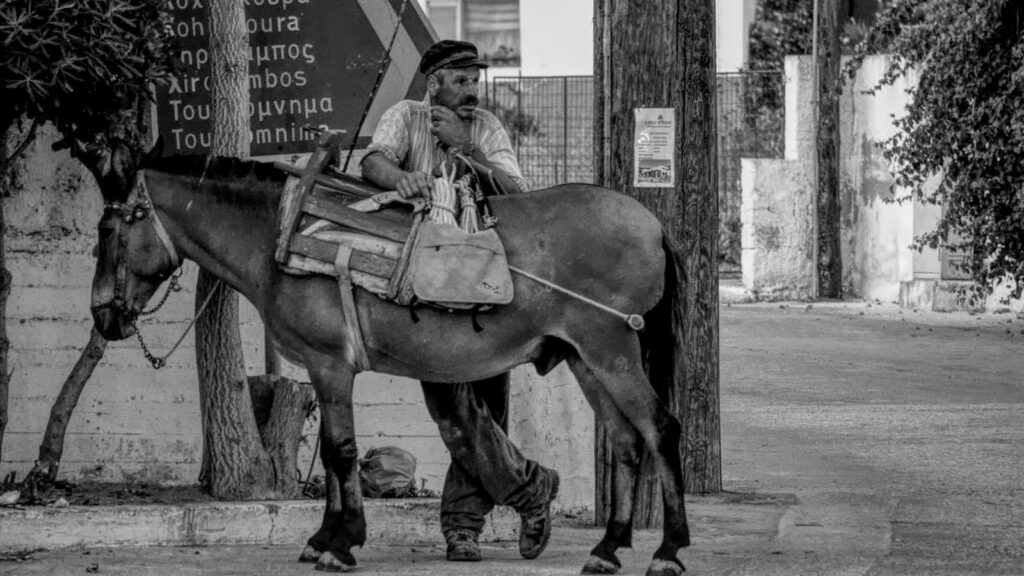
For horses unaccustomed to transportation, a gradual introduction to travel can significantly reduce anxiety. Begin with very short trips of just a few minutes around your property or down the road, allowing the horse to experience the sensation of movement without the overwhelming stress of a long journey. Progressively increase trip duration as your horse demonstrates comfort with shorter intervals, using positive experiences to build confidence. These practice sessions allow horses to develop the balance and muscle coordination needed for traveling while learning that the trailer experience consistently ends with a return to safety. For young horses or those with no travel experience, this process may take weeks or months, but the investment of time creates a foundation for stress-free transportation throughout the horse’s life.
Nutritional Considerations for Traveling Horses
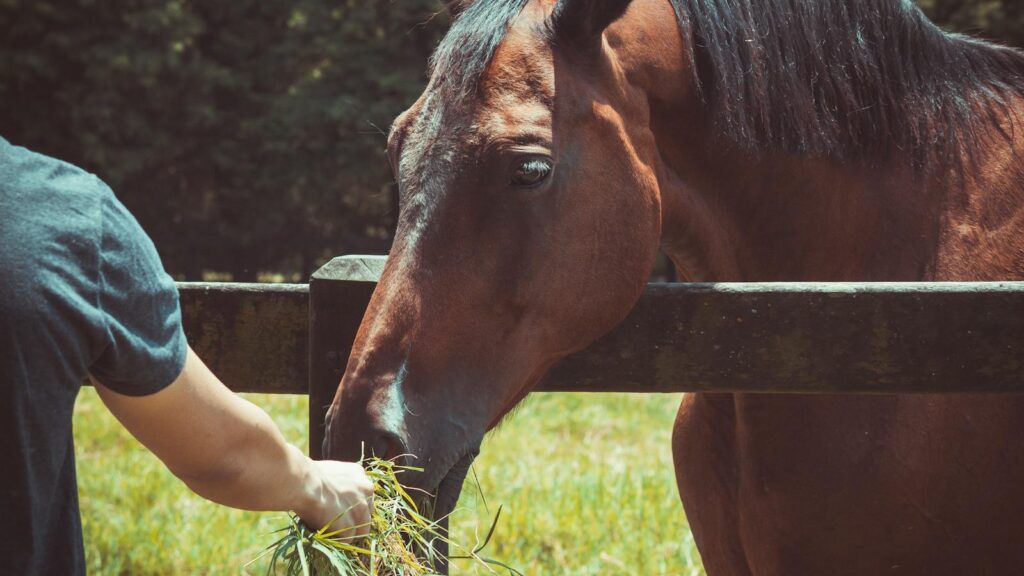
Proper nutritional management before, during, and after transport plays a vital role in reducing travel-related stress and preventing health complications. Maintain your horse’s regular feeding schedule as much as possible, as dietary consistency helps stabilize gut function during stressful situations. Ensure access to good quality hay throughout the journey, which not only provides necessary nutrients but also keeps the digestive system moving and gives the horse something familiar and comforting. For journeys exceeding 6-8 hours, plan appropriate rest stops where horses can be offered water and monitored for signs of dehydration or discomfort. Avoid feeding large grain meals immediately before loading, as this can increase the risk of colic when combined with travel stress, but do ensure the horse is properly hydrated before departure.
Companion Animals and Familiar Objects
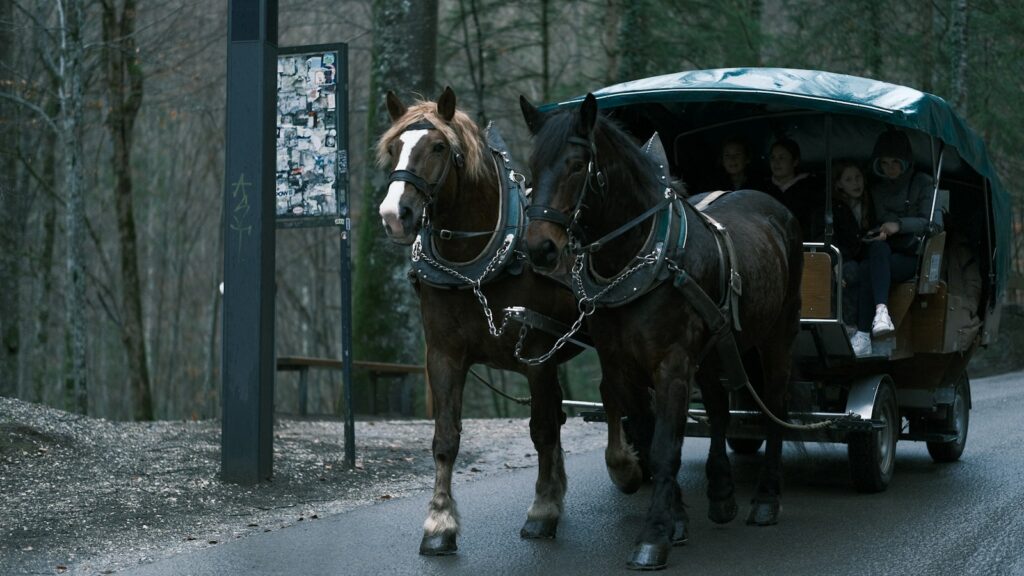
Horses are herd animals that derive security from the presence of familiar equine companions, making solitary travel potentially more stressful for many individuals. When possible, transport horses with a compatible equine companion to provide social comfort during the journey. For horses that must travel alone, familiar objects carrying home scents—such as their regular blanket or a hay net filled with hay from their home stable—can provide psychological comfort through sensory familiarity. Some horses benefit from traveling with small companion animals like goats or miniature horses if they’ve established bonds with these animals at home. The presence of trusted human handlers who speak in calm, reassuring tones during loading and rest stops can also significantly reduce anxiety for horses with strong human bonds.
Appropriate Use of Calming Supplements

Natural calming supplements can be helpful tools for managing travel anxiety in particularly stressed horses when used appropriately and under veterinary guidance. Products containing ingredients such as magnesium, B vitamins, L-tryptophan, or herbs like valerian or chamomile may help take the edge off without sedating the horse or masking important stress signals. These supplements typically work best when introduced several days before travel to build effective levels in the system rather than as last-minute solutions. It’s essential to consult with your veterinarian before using any calming products, as some competitions have restrictions on certain substances, and what works for one horse may be ineffective or inappropriate for another. Remember that supplements should complement rather than replace proper training, acclimation, and management practices for traveling horses.
Professional Transportation Considerations
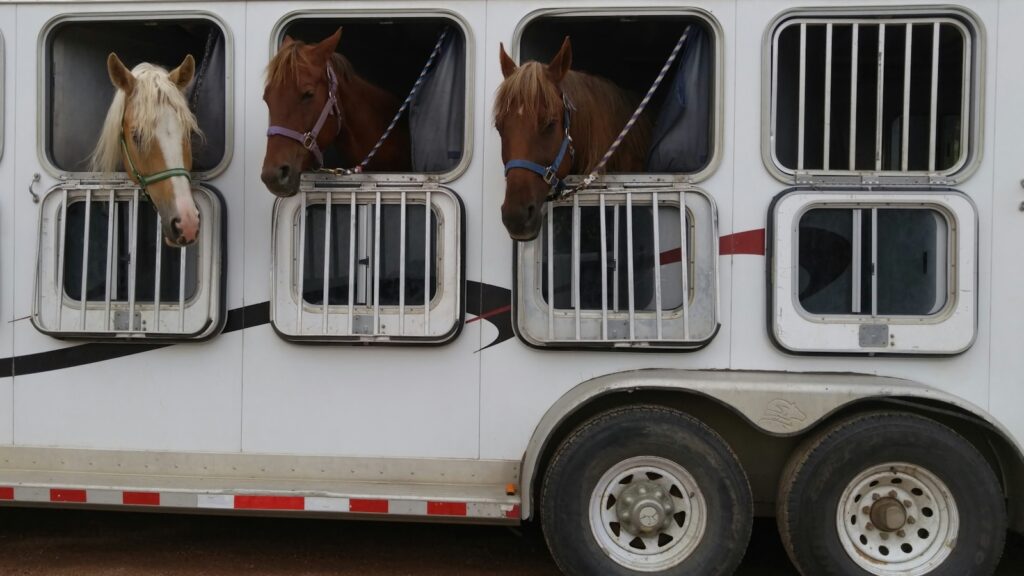
When hiring professional horse transport services, thorough research and careful selection can significantly impact your horse’s travel experience. Request references from previous clients and verify the transporter’s experience specifically with horses similar to yours in temperament and travel needs. Discuss their protocols for handling emergencies, scheduling rest stops, monitoring horses during transit, and managing difficult loading situations. Professional transporters should carry appropriate insurance, use well-maintained equipment, and employ handlers trained in equine behavior and first aid. Communicate clearly about your horse’s specific needs, behaviors, or health concerns, and provide detailed written instructions along with emergency contact information. Choosing the right professional service can make a tremendous difference in minimizing travel stress, particularly for long-distance journeys.
Safe Driving Practices for Horse Transport
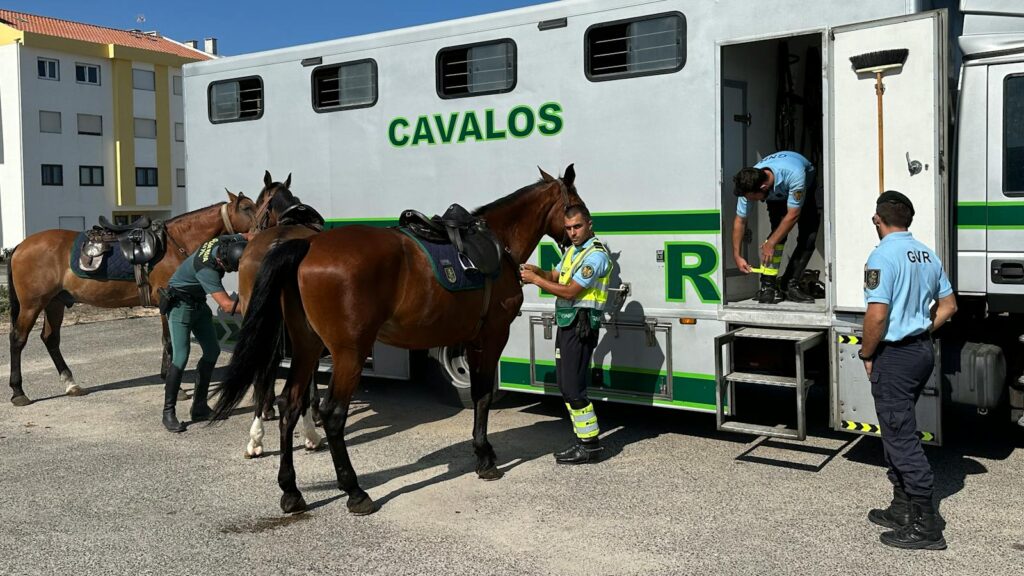
The quality of driving has a direct impact on your horse’s balance, comfort, and stress levels during transport. Horses must constantly adjust their posture and muscle tension to maintain balance in a moving trailer, making smooth, defensive driving essential for reducing physical fatigue and anxiety. Avoid sudden starts, stops, or sharp turns that can throw horses off balance and potentially cause injury or increase fear. Maintain appropriate speeds—generally slower than you would drive without horses—and allow extended following distances to enable gradual braking. Be particularly mindful when navigating curves, changing lanes, or approaching traffic signals, giving your equine passengers time to adjust their balance accordingly. Consider that activities requiring minimal effort for humans, such as maintaining balance during transport, demand continuous muscular exertion from horses, making driver awareness and consideration crucial for stress reduction.
Monitoring Health During Travel

Regular monitoring during transport allows for early intervention if stress-related health issues develop. For journeys exceeding 4-6 hours, schedule appropriate rest stops where you can assess the horse’s condition, offer water, and provide brief relief from the confined trailer environment. During these checks, evaluate hydration status by checking capillary refill time, skin elasticity, and mucous membrane appearance, while also monitoring vital signs like heart rate and respiration. Watch for early warning signs of travel-related problems such as colic, respiratory issues, or heat stress, which can develop rapidly in confined transport conditions. For longer journeys, consider using cameras or having someone ride in a separate compartment where they can observe the horses during travel, providing real-time monitoring of stress behaviors or signs of discomfort that might warrant a stop for assessment.
Post-Travel Recovery Protocols
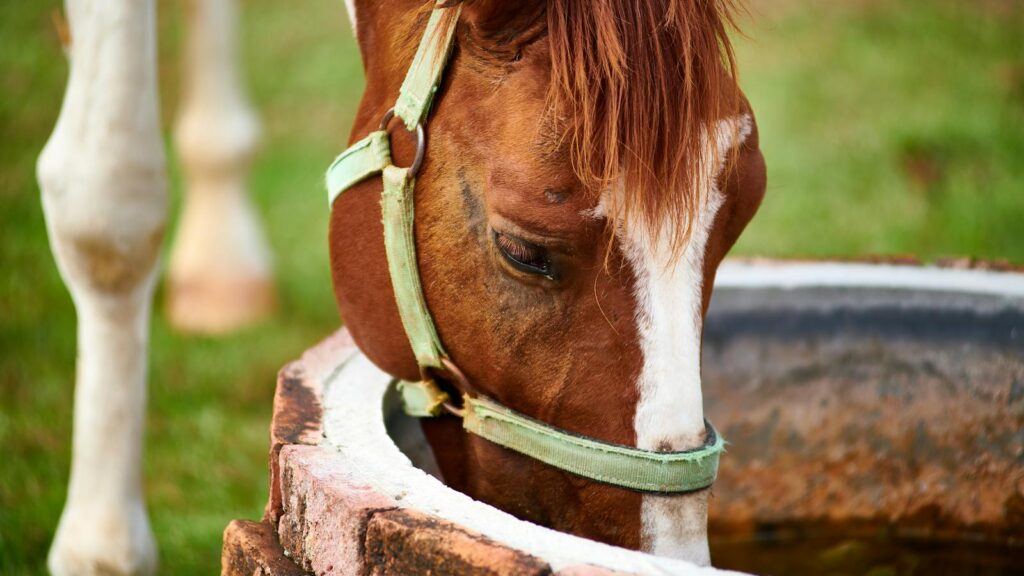
The care provided immediately after arrival plays a significant role in helping horses recover from travel stress and preventing complications. Upon reaching your destination, allow the horse to drink small amounts frequently and offer fresh hay to help rehydrate and restart normal digestive function after the journey. A thorough physical assessment should check for any injuries, swelling, or elevated temperature that might indicate developing health concerns. When possible, provide a period of supervised turnout or hand-walking to allow the horse to stretch, relieve muscle tension, and mentally decompress from the confined transportation experience. For competition horses, planning arrival well before scheduled performance times gives adequate recovery from travel stress, as research indicates physiological stress markers can remain elevated for 24-48 hours after transportation, potentially affecting performance if adequate recovery time isn’t provided.
Legal and Health Documentation Requirements
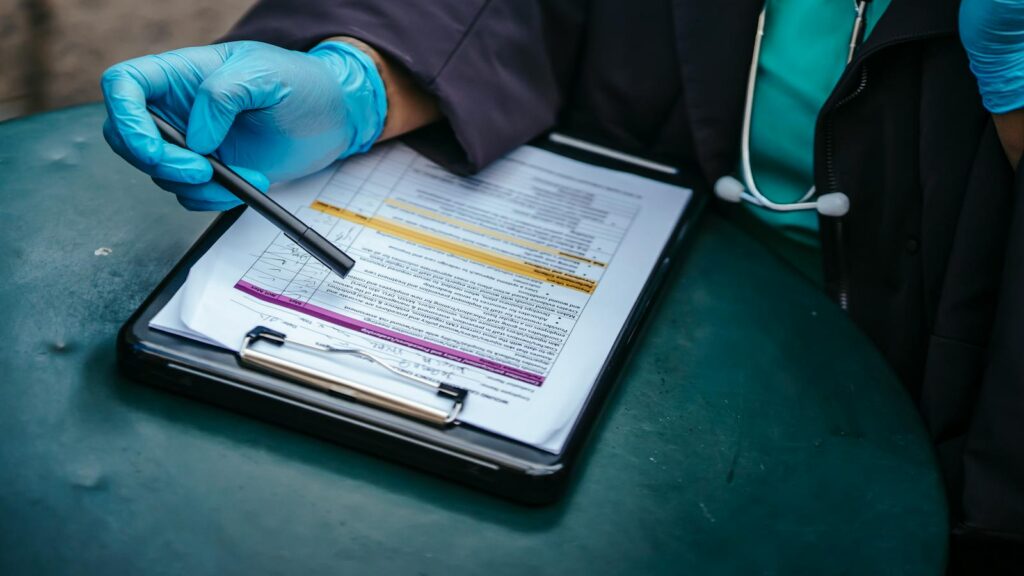
Being properly prepared with all required documentation not only ensures compliance with regulations but also reduces stress by preventing delays or complications during your journey. Requirements typically include a current negative Coggins test for Equine Infectious Anemia, health certificates signed by a veterinarian within a specific timeframe of travel, and potentially interstate travel permits depending on your origin and destination. Some states or countries have additional requirements such as specific vaccinations, microchipping, or quarantine periods that must be arranged well in advance. Having these documents organized and readily accessible in a waterproof container prevents stressful situations at checkpoints or borders where delays could extend travel time and increase your horse’s anxiety. Consulting with your veterinarian and relevant agricultural departments well before travel ensures you have current information on all requirements for your specific route.
conclusion

Reducing stress during equine transportation requires a multifaceted approach combining proper preparation, appropriate equipment, considerate handling, and attentive monitoring. By understanding the natural behaviors and needs of horses, owners can implement strategies that transform potentially frightening travel experiences into manageable journeys. Remember that each horse is an individual with unique responses to travel stressors, necessitating personalized approaches developed through observation and experience. Through proper training, gradual acclimation, and attention to environmental comfort, nutrition, and driving practices, horse owners can significantly minimize the physical and psychological impact of transportation. This comprehensive approach not only protects your horse’s immediate wellbeing but also helps develop a seasoned traveler who can reliably perform at destinations without the lingering effects of travel-related stress.

